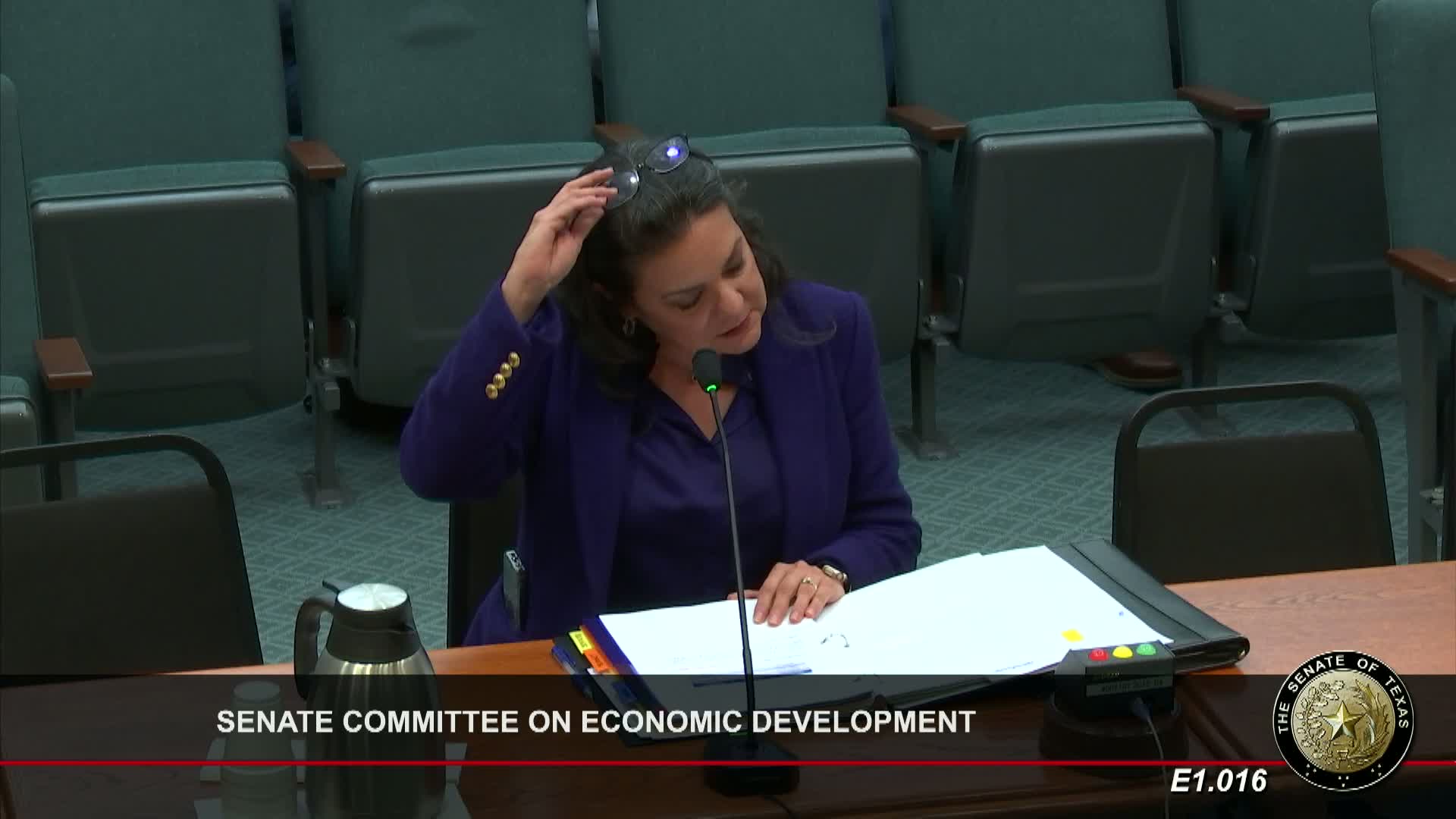Committee considers technical fix to JEDI program to help dispatchable generators qualify for school-district abatements

Summary
A committee substitute for Senate Bill 23-22 would exempt dispatchable electric generation facilities from the JEDI program's "compelling factor" site-selection test. Supporters said the change restores legislative intent; opponents warned it weakens fiscal safeguards.
The committee considered a committee substitute to Senate Bill 23-22 that would amend the Jobs, Energy, Technology and Innovation (JEDI) Act to exempt dispatchable electric generation facilities from the program’s "compelling factor" test. Supporters said the change restores the program’s original intent and prevents a technicality from excluding generators that must locate inside ERCOT.
Adrianna Cruz, executive director of the Governor’s Office of Economic Development and Tourism, provided a primer on the JEDI program, describing how applications are evaluated by the comptroller, the governor’s office and a school district and explaining that the program can limit a school-district M&O (maintenance and operations) tax appraisal value to 50% for an approved project (with an additional 25% for qualified opportunity-zone locations). Cruz cited announced JEDI projects and described the program timeline.
Senator Schwartner introduced the substitute, saying dispatchable generation often cannot satisfy a site-selection "compelling factor" because the grid and interconnection needs determine location. Mark Bell of the Association of Electric Companies of Texas (AECT) testified in support and described the change as “an important technical correction” that “restores the intent” of the 2023 law. Walt Baum of Power in Texans also supported the correction, saying generators effectively cannot meet a standard that assumes out-of-state alternatives.
Senator Johnson and other members questioned whether the substitute would weaken the program’s safeguards. Johnson argued that the compelling-factor test existed to ensure agreements lead to relocations or investments that would not occur “but for” the incentive. Supporters said a strict test can unintentionally exclude generators that must, by the nature of the ERCOT grid, build in Texas and thus never compete out of state.
The committee took testimony and left the substitute pending. No committee vote was recorded.

